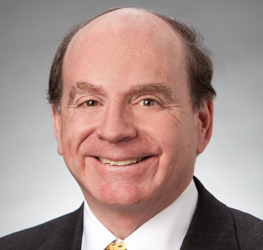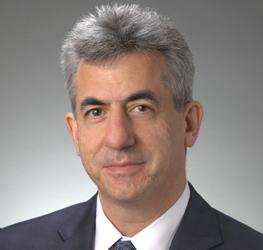CMS Announces Comprehensive Primary Care Initiative Soliciting Participation From Health Care Payers
The Centers for Medicare and Medicaid Services (CMS) has announced plans to develop a Comprehensive Primary Care (CPC) initiative. In a notice published in the Federal Register on October 3, 2011, CMS announced a solicitation seeking participation of health care payers as its first step, with plans to develop a multi-payer model that focuses on making adjustments in the delivery of and payment for primary care services.
The CPC initiative is another program from CMS and its Center for Medicare and Medicaid Innovation (CMMI) designed to meet the Triple Aim of better health in the overall population, better health care delivery, and reduction in per capita cost of care. The CPC initiative joins other CMS initiatives, including the Medicare Care Shared Savings Program, the Pioneer ACO Program, the Bundled Payments initiative, and various demonstration programs — all of which have been designed to achieve the Triple Aim through modifications in how health care is delivered and reimbursed.
The goal of the CPC initiative is to test a comprehensive primary care service and payment model with a focus on the inclusion of the following core factors as part of the delivery of primary care services:
- Risk-stratified care management
- Access and continuity
- Planned care for chronic conditions and preventative care
- Patient and caregiver engagement
- Coordination of care across the medical neighborhood
Payer Focus With Multiple Payer Participation. Recognizing the importance of having a consistent reimbursement method irrespective of the payer of the service, the CPC initiative first seeks involvement of multiple payers (beyond the Medicare program) in a given market. The goal of the initiative is to have a majority of the payers in five to seven different geographic markets participate. The initial solicitation is directed to public and private payers, which, in addition to the Medicare program, may include Medicare Advantage Plans, state Medicaid plans, state employee plans, commercial insurers, and third-party administrators of self-insured businesses or groups (including TPAs of business coalitions). Any such payers may apply, and if they are interested, they are requested to respond individually to CMMI first by letter of intent, which is to be followed by an application for participation. Based on the applications received, CMMI will select the payers in five to seven markets. Once the payers and markets are selected, primary care practices will be recruited for the CPC initiative in each of the selected markets. CMS’ expressed goal is to have 75 primary care practices participate in each of five to seven selected markets, and that up to 330,750 Medicare and Medicaid beneficiaries will be involved over the course of the four-year initiative.
Selected payers must be willing to collaborate with the Medicare program to try a new payment program that includes enhanced financial support that goes beyond fee-for-service payments for participating primary care practices. Payers who apply must describe the proposed payment support that they propose, which must be designed to meet the objectives of the CPC initiative. Selected markets will be those comprising areas in which a preponderance of the payers have applied and have offered strategies that align with those planned by CMS for the Medicare program.
Extension of Medical Home Model. The CPC initiative is intended as an extension of the patient-centered medical home concept by including payment reform as part of the concept. CMS notes in its solicitation document that medical home models have tended to focus on care processes with only limited attention to the payment environment. The CPC initiative adds payment models. With multiple payers in a particular market participating, the CPC initiative is intended to offer enhanced financial support for primary care providers from each of many different payers as part of the medical home, primary care environment.
Payment Approach: Medicare and Others. CMMI has indicated that, on behalf of Medicare beneficiaries, it will pay an average of $20 per beneficiary per month (PBPM) for Medicare fee-for-service patients. Such payment is independent of the fee-for-service or per-visit payments. Such amount is designed to provide primary care practices with the financial support needed to supply effective care management, improved access, and planned care and coordination. The $20 PBPM will be reduced to $15 PBPM in the third and fourth years of the program. There also will be risk adjusted payments of $8 to $40 PBPM paid to primary care practices. In years two to four of the program, CMMI also will include a shared-savings bonus, the amount of which will be calculated at the market level, not the individual practice level. The shared savings will be distributed to the practices based on quality and utilization metrics, practice size, and practice-level risk.
Participating payers other than Medicare are expected to make contributions to primary care practices supporting the infrastructure to accomplish the primary care core functions. Other payers need not adopt the PBPM payment approach Medicare proposes to use. The notice suggests that payers (other than Medicare) may provide support through a PBPM care management fee or through direct support for services such as embedded care managers, health educators, or pharmacists.
CMMI has offered to provide financial assistance to states who apply to participate on behalf of their Medicaid programs, provided they are selected.
Other Criteria, Alignment of Beneficiaries, Data Sharing. CMMI proposes that for Medicare it will use a prospective alignment methodology to assign Medicare fee-for-service beneficiaries to a primary care practice within a market. This is in contrast to the retrospective attribution in the Medicare Shared Savings Program, the attribution method of which has been criticized by many. Prospective alignment is necessary to set and pay the PBPM fee to the practices. Other payers may elect a different methodology.
Data sharing by the Medicare program and other payers also is a critical aspect of the program. Participating payers are to propose their data sharing methodology.
Payers who participate also are expected to align quality, practice improvement, and patient experience measures with CMMI for purposes of monitoring implementation milestones, quality improvement, and patient experience.
Payer Letter of Intent and Application. Payers desiring to participate must file a non-binding letter of intent by November 15, 2011. Those who express such an interest will be given access to an application for the CPC initiative through an online portal. Applications for participation must be submitted by January 17, 2012.
Primary Care Practice Eligibility. After selection of the payers and identification of the markets, primary care practices will be recruited to participate. Among the identified eligibility requirements for primary care practices are:
- Be led by a board-certified general practitioner, internist, family practitioner, geriatrician, or advanced practice nurse
- Be composed predominantly (but not necessarily exclusively) of primary care providers
- Have multiple sites
- Be located in a selected market with selected payers
- Have a minimum of 200 eligible non-institutional Medicare beneficiaries
- Utilize an EHR or electronic reporting
Conclusion
The CPC initiative is another CMS program initiated by the CMMI to improve health care and restrain costs. As described above, it takes a different approach than other CMS proposed initiatives by focusing on participation of many payers in a market. It is another initiative certain providers will want to consider as they seek to deliver more efficient and accountable care.
Legal News Alert is part of our ongoing commitment to providing up-to-the-minute information about pressing concerns or industry issues affecting our clients and our colleagues. If you have any questions about this update or would like to discuss this topic further, please contact your Foley attorney or the following:
C. Frederick Geilfuss II
Partner
Milwaukee, Wisconsin
414.297.5650
[email protected]
Donald H. Romano
Of Counsel
Washington, D.C.
202.945.6119
[email protected]
Gary D. Koch
Partner
Tampa, Florida
813.225.4124
[email protected]
Diane Ung
Partner
Los Angeles, California
213.972.4669
[email protected]
Lawrence W. Vernaglia
Partner
Boston, Massachusetts
617.342.4079
[email protected]



